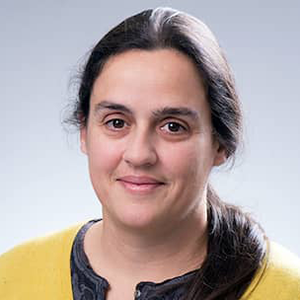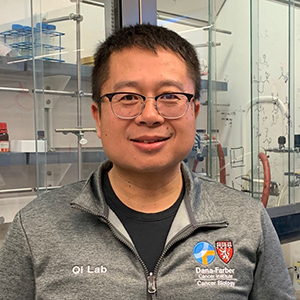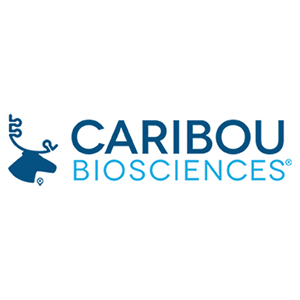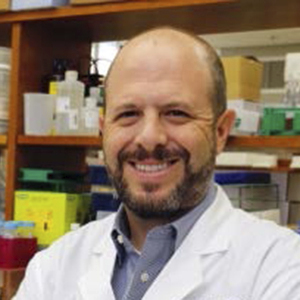Research We Fund
With hundreds of projects currently underway, we fund scientists through our academic grant programs and biotech partners through our strategic venture philanthropy initiative. Use the filters below to find an LLS-funded project.
For a better viewing experience, please use a larger device.
A Decentralized Randomized High-Fiber Dietary Trial to Improve Outcomes in Newly Diagnosed Myeloma
We will conduct a decentralized randomized controlled trial of a high-fiber plant-based dietary intervention among patients with multiple myeloma undergoing induction chemoimmunotherapy. The study will assess whether the intervention (meals and virtual coaching) leads to improved rates of complete response, and quality of life mediated by improvements in weight and insulin resistance. The study is expected to provide rigorous evidence of the effectiveness of this intervention in patients with newly diagnosed multiple myeloma and support the development of low-cost, minimal-risk nutrition as a strategy to improve cancer treatment outcomes.
Program: Academic Clinical Trials Program (ACT)Project Term: Start Date: March 1, 2025 End Date: February 29, 2028
Genomic and epigenomic interactions of complex structural variants affecting outcome in multiple myeloma
Multiple myeloma is characterized by severe changes in chromosomes that result in gains or losses of genetic material. Several key events disrupt the genome of myeloma cells and are important in defining poor patient outcome, but the biological mechanisms of how they cause high-risk disease is not known. We will perform comprehensive genomic studies, involving six different cutting-edge techniques, to examine the interactions of these high-risk events and identify the mechanisms leading to them.
Program: DiscoveryProject Term: Start Date: October 1, 2024 End Date: September 30, 2027
Epigenetic Mechanisms and Targeting in Hematological Malignancy
Blood cancers can be caused by aberrant regulation of genes that control cell growth and development. The root cause of this problem may be the presence of mutant regulator proteins in the cell and abnormal switching on or off of target genes. Our SCOR studies the molecular basis of this gene deregulation using cell cultured in the laboratory, in human specimen and animal models.
Melnick will study the complex of proteins evolve in looping DNA segments to put gene regulatory sequences in proximity of genes critical for the development of antibody producing B cells. Abnormalities of this apparatus lead to lymphoma. Roeder will study multi-protein complexes involved in “bookmarking” chromatin (the complex of DNA and histones found in the cell nucleus) by chemical modification. He studies the proteins that initiate transcription of DNA into RNA and that assure the passage of the polymerase that creates messenger RNA across genes. Soto-Feliciano studies TRIM28, a protein essential for growth of acute leukemia will identify its mechanisms and target genes. Licht will study the role of chromatin regulators in the response of the immune system to multiple myeloma and how inhibitors of chromatin regulator inhibitors affect the tumor immune response. Patel will study in explore the three-dimensional structures of these protein complexes critical for gene regulation in blood malignancies to understand their mechanisms and develop new small molecules to modulate their action.
Program: Specialized Center of Research ProgramProject Term: Start Date: October 1, 2024 End Date: September 30, 2029
Impact of State Health Insurance Mandates on Affordability and Utilization of Fertility Preservation in Adolescent and Young Adults with Blood Cancers
Fertility preservation (FP) treatments can prevent infertility caused by blood cancer. However, FP costs are high, and these services are typically not covered by insurance, contributing to low utilization. New state laws require insurers to cover FP, but it is unknown if they improve access to care. Using national insurance data, this study will examine how much out-of-pocket costs remain, whether patients’ share of costs is like that of other cancer services, and whether and which types of laws increase use and affordability.
Program: Equity in AccessProject Term: Start Date: July 1, 2024 End Date: June 30, 2027
Enhancing Connection and Communication with Community-Based Oncology Practices to Improve Cancer Clinical Trial Recruitment: The ECCO Study
In collaboration with 10 community-based oncology practice sites, this study will implement a multi-level intervention trial to test the effectiveness of two community oncology strategies designed to increase trial accrual by focusing on a) enhancing the relationship between community oncologists and trial PIs and reducing barriers to referral, and b) an interactive online training focusing on improving community oncologists’ knowledge and attitudes about trials, as well as their ability to discuss clinical trials with their patients.
Program: Equity in AccessProject Term: Start Date: July 1, 2024 End Date: June 30, 2029
RECONNECT: Overcoming Racial and Ethnic Inequity in Clinical Trial Enrollment via Clinical Trial Nurse Navigation and Provider Communication Training
This study will implement a skill-based didactic course for providers to improve the quality of communication around structural racism, mistrust, implicit biases, and clinical trial counseling. This study will also implement a culturally competent, specialized clinical trials nurse navigation program that connects patients to educational resources around clinical trials and standardizes pre-screening for new patients prior to the initial clinic visit.
Program: Equity in AccessProject Term: Start Date: July 1, 2024 End Date: June 30, 2029

Anushree Vichare, PhD, MBBS
The George Washington University
Washington, District of ColumbiaAddressing Inequities in Access to Care for Patients with Hematologic Malignancy: Understanding the Impact of Telehealth Policies in Medicaid
Telehealth could improve access for Medicaid patients with a blood cancer who experience barriers to specialty care, but not all specialists offer it. Using Medicaid data, this study will provide novel information on whether blood cancer specialists are continuing to use telehealth following the COVID-19 pandemic when telehealth use increased dramatically. This study will also examine if telehealth helps address inequities in access to specialists, including for racial/ethnic minoritized groups and those living in rural areas.
Program: Equity in AccessProject Term: Start Date: July 1, 2024 End Date: June 30, 2027
Improving outcomes of multiple myeloma using TGF-beta resistant BCMA-targeted CAR T cells
Immunotherapy using chimeric antigen receptor (CAR) T cells, or CARTs for short, holds great promise for improving outcomes and survival of patients with relapsed and/or refractory multiple myeloma (RRMM). Next-generation “armored” CARTs that can overcome transforming growth factor beta (TGF-beta) dependent immune suppression in the tumor microenvironment may provide deeper and more durable disease control than the TGF-beta sensitive CART products currently in clinical use.
Program: Translational Research ProgramProject Term: Start Date: July 1, 2024 End Date: June 30, 2027
Targeting the Osteogenic Lineage as a Therapeutic Strategy in Multiple Myeloma
Multiple myeloma causes devastating bone disease characterised by focal bone lesions and generalise bone loss, which leads to an increase in bone fractures. Current therapies only stop bones from getting worse so patients continue to suffer fractures. We discovered that inhibiting a molecule called sclerostin in mice increases bone and is much better than current treatments. In this program we will investigate whether inhibiting sclerostin is able to restore lost bone and reduce fractures in patients with myeloma.
Program: Translational Research ProgramProject Term: Start Date: July 1, 2024 End Date: June 30, 2027
Enhancing the “fitness” of anti-BCMA CAR T cells for improved efficacy in multiple myeloma
Chimeric antigen receptor (CAR) T cell therapy is a form of immune-based therapy where a patient’s own immune cells are genetically engineered to recognize and kill the tumor cells. This therapy has revolutionized the treatment of certain blood cancers and excitingly, two CAR T cell products were recently approved for the treatment of multiple myeloma.
Despite impressive initial clinical data showing responses in 73-98% of patients, most patients still relapse after CAR-T cell therapy within 3 years. Therefore, there is a significant unmet need to further enhance the effectiveness of CAR T cell therapy in this disease. In this project we will investigate whether an approach we have shown to make CAR T cells “fitter” and more effective in solid tumors is also effective in the context of multiple myeloma.
Program: Translational Research ProgramProject Term: Start Date: July 1, 2024 End Date: June 30, 2027
Improving outcomes with immune therapies for multiple myeloma
The primary focus of research is to better understand mechanisms of resistance to immunotherapies and design treatment approaches to improve outcomes. I hope to accomplish this by conducting clinical trials that concurrently target both BCMA and GPRC5D in patients with advanced multiple myeloma and by studying antigen expression, tumor genetics, and T cell characteristics to better understand mechanisms of resistance. The goal is to develop more effective immune treatments for myeloma.
Program: Career Development ProgramProject Term: Start Date: July 1, 2024 End Date: June 30, 2029
Multiple Myeloma Support from the Microenvironment: Bone Marrow Adipocytes and the Fatty Acid Binding Proteins
Our project’s goal is to change how multiple myeloma is understood and treated by interrogating a novel part of the cellular “soil” (the bone marrow adipocyte), in which myeloma cells, or “seeds”, land and grow. We will discover new forms of cancer drug resistance that are driven by adipocyte-derived factors and the fatty acid binding proteins. This work will expose new ways to overcome drug resistance to improve survival and quality of life for myeloma and other hematological cancer patients.
Program: Career Development ProgramProject Term: Start Date: July 1, 2024 End Date: June 30, 2029
Novel targeted therapies for acute myeloid leukaemia and multiple myeloma
Outcomes for acute myeloid leukemia (AML) and multiple myeloma (MM) patients remain inadequate and new treatment options to combat resistance against existing agents are urgently needed. My research aims to identify and target selective vulnerabilities of AML and MM cells. I am particularly interested in epigenetic and metabolic pathways that control self-renewal and differentiation of hematopoietic cells and that can be leveraged to modulate cell fate for therapeutic benefit.
Program: Career Development ProgramProject Term: Start Date: July 1, 2024 End Date: June 30, 2029

Fenghuang Zhan, MD, PhD
University of Arkansas for Medical Sciences
Little Rock, ArkansasToward improvement of BCMA/CST6-CAR-T therapy to target both myeloma cells and bone resorption
We have observed that non-glycosylated CST6 proteins suppress osteoclast differentiation and function without causing immunosuppression. We aim to determine whether BCMA-CAR-T cells which are engineered to secret CST6 proteins kill myeloma cells and suppress bone lytic lesions without immune suppressive effects in myeloma. Our ultimate goal is to develop a CAR-T-cell based immune therapy to prevent bone loss and disease progression in myeloma patients.
Program: Translational Research ProgramProject Term: Start Date: July 1, 2024 End Date: June 30, 2027

Alfred Garfall, MD
Perelman School of Medicine at the University of Pennsylvania
Philadelphia, PennsylvaniaLimited-duration bispecific antibody therapy for multiple myeloma
Bispecific antibodies are a new, highly effective immunotherapy for multiple myeloma. Most bispecific antibody therapies have been tested as continuous therapies in which patients continue receiving the treatment until the myeloma starts growing again. Preliminary results suggest that patients with good responses may be able to stop therapy and enjoy a period of time off-therapy with close observation, which may limit long term toxicities caused by continuous therapy. We propose a clinical trial to test this limited-duration approach with recently approved bispecific antibodies for multiple myeloma.
Program: Academic Clinical Trials Program (ACT)Project Term: Start Date: July 1, 2024 End Date: June 30, 2027
Functional dissection of heterogeneity of responses to CAR T cells using Spatiotemporal Image-guided Genomic and Cellular Analysis (SaGA) in myeloma
Despite remarkable progress in the last 20 years, multiple myeloma remains an incurable disease. In recent years, 2 CAR T cell products that target BCMA on the myeloma cell have been approved. These products result in remarkable initial responses however the duration of these responses has been disappointing. In this proposal, we will take a novel approach to isolate and characterize myeloma cells that interact with CAR T cells but are not killed by them as a potential resistance mechanism.
Program: DiscoveryProject Term: Start Date: October 1, 2023 End Date: September 30, 2026
Pilot trial of microbial targeting to prevent myeloma
Our recent studies have identified specific bacteria that can potentially promote the growth of human myeloma tumor cells. We are now testing if eradicating these bacteria in MGUS patients will be effective for prevention of myeloma.
Program: Academic Clinical Trials Program (ACT)Project Term: Start Date: July 1, 2023 End Date: June 30, 2026

Robert Orlowski, PhD, MD
The University of Texas MD Anderson Cancer Center
Houston, TexasTargeting HSP70 to Immune Effector Cells to Overcome the Immune Suppressive Myeloma Microenvironment
Development of a strong anti-cancer immune response requires coordinated action of the innate and adaptive parts of the immune system, but cancer cells alter their environment to suppress virtually every step in this process, which promotes cancer progression and treatment resistance. One promising strategy could be to target Heat shock protein 70 (HSP70), which plays an important role in both innate and adaptive immunity, and we therefore developed a series of novel antibodies to HSP70, one of which cured mice of multiple myeloma. Based on strong preliminary data, we propose additional studies to better understand how this antibody activates various types of immune cells, how it works against both cancer cells and modifies the immune environment in mouse models, and how it could work even better in combination with other agents against myeloma. Since this antibody is already being developed into a drug for phase I clinical trials, these studies will directly inform its use in the clinic against multiple myeloma, and possibly against other blood-related cancers such as B-cell lymphomas.
Program: Translational Research ProgramProject Term: Start Date: July 1, 2023 End Date: June 30, 2026
Stem cell features and Notch signaling in p53 deleted multiple myeloma
We have investigated the consequences of p53 loss on stem cell properties, namely clonogenic growth, self-renewal, and drug resistance in multiple myeloma. We have found that both the level of Notch signaling and BCMA impact these properties, and we will explore novel strategies to improve outcomes in p53 mutant multiple myeloma.
Program: Translational Research ProgramProject Term: Start Date: July 1, 2023 End Date: June 30, 2026
Development of a novel BCL2L1 armored CAR T-cell and a tumor-immune interactome in multiple myeloma
Novel immune approaches have revolutionized the treatment paradigms in multiple myeloma (MM) with deep responses seen in heavily pretreated patients. However responses are largely not durable with significant gaps remaining in our understanding of the mechanisms mediating the immune escape to to CAR T cells and T cell engagers. Harnessing the power of single cell immunogenomics and building on the knowledge we amassed to date, we plan to address these therapeutics and mechanistic challenges firstly through the informed design and clinical development of a BCL2L1 armoured BCMA-targeting CAR T cell, and secondly by establishing a dictionary of the MM-TME interactome through serial interrogation of primary MM cells and their immunome generating a dynamic risk prediction model to better guide the delivery of immuno-therapeutics.
Program: Translational Research ProgramProject Term: Start Date: July 1, 2023 End Date: June 30, 2026
Targeting GCK as a novel and selective therapeutic strategy against RAS mutated Multiple Myeloma
RAS/MAPK mutations are the key drivers in MM, which occurs in 50% of newly diagnosed and higher in relapsed MM patients. However, RAS remains undruggable in MM. We found that RAS mutation MM growth is highly dependent on germinal center kinase(GCK). The goal of this project is to develop small molecule inhibitors against GCK with the expected outcome to provide novel treatments for relapsed/refractory and especially multi-drug resistant MM with RAS mutation, as well as other B-cell malignancies.
Program: Translational Research ProgramProject Term: Start Date: July 1, 2023 End Date: June 30, 2026
Developing Novel CAR-T Cell Therapy For Hematologic Malignancies
We observed that patients with many hematologic cancers expressed high levels of DKK1 and generated novel human DKK1-A2 CAR-T cells that can kill cancer cells from HLA-A2+ patients with myeloma, lymphoma, or leukemia. We also found that Th9-polarized T cells have enhanced antitumor effects in vivo. In this proposal, we will determine 1) whether and how Th9-polarized DKK1-A2 CAR-T cells are promising effector T cells for immunotherapy of human patients, and 2) whether Th9-polarized DKK1-A2 CAR-T cells are associated with reduced on- and off-target toxicities. Completing these studies are critical for developing new and effective CAR-T therapy for patients with hematologic malignancies who are still dying from the disease.
Program: Translational Research ProgramProject Term: Start Date: July 1, 2023 End Date: June 30, 2026
Targeting acetyl-CoA synthetase 2 to remodel obesity-evoked inflammatory microenvironment in myeloma
Our proposal aims to develop a novel strategy to improve therapeutic efficacy for patients with multiple myeloma by remodeling obesity-induced inflammatory microenvironment. We hypothesize that acetyl-CoA synthetase 2, which is stimulated by obesity, enhances inflammatory cytokine production from myeloma cells, leading to an inflammatory niche where anti-tumor function of CD8+ T cells is dampened, and tumor growth is promoted. Our study will be the first to explore a novel insight for how obesity impacts the interaction between myeloma cells and microenvironment. In preparation of using the inhibitor of acetyl-CoA synthetase 2 in the clinical setting, we will establish its potential as a single agent or in combination of other chemo- or immuno- drugs to treat myeloma.
Program: Translational Research ProgramProject Term: Start Date: July 1, 2023 End Date: June 30, 2026
Developing selective inhibitors of the b-catenin/BCL9 transcriptional complex for myeloma therapy
The b-catenin/BCL9 transcriptional complex, is a novel dependency in multiple myeloma (MM). Disruption of this complex inhibits MM cell growth in culture and in MM xenograft models. Development of potent selective b-catenin/BCL9 inhibitors will provide valuable tools to further investigate their mechanism of MM inhibition. We have established a chemistry, structural biology, and molecular pathology platform to facilitate novel inhibitor development, and explore its translational potential in MM.
Program: Translational Research ProgramProject Term: Start Date: July 1, 2023 End Date: June 30, 2026
Designed biosensor to enhance CAR T cell therapy for multiple myeloma
We will develop a novel T cell therapy strategy for multiple myeloma (MM) that will combine existing chimeric antigen receptors (CARs) with a novel designed biosensor responding to soluble factors abundantly present in the MM bone marrow environment in patients. The biosensor will be expressed as novel type of chimeric receptor in T cells concomitantly with the CAR and signal the T cells to persist longer and keep eliminating cancer cells from the body. We will deeply characterize the effects of our novel biosensor in CAR T cells to precisely understand how the treatment works. If successful, we expect that CAR T cell therapy for MM can be made more efficient, and the same strategy could potentially also be applied to other cancer types.
Program: Translational Research ProgramProject Term: Start Date: September 1, 2023 End Date: August 31, 2026
Pharmacological strategies to enhance T- and NK-cell-based therapies in blood cancers
Although they represent a major therapeutic progress for blood cancers, CAR-T cells and other T-cell based therapies are subject to eventual development of resistance to many patients. Natural killer (NK) cell-based therapies are highly active against many types of blood cancer cells which are resistant to T cells, but in our CRISPR studies death receptor signaling defects emerge as a common downstream mechanism of resistance to both T- and NK-cell therapies. Building on extensive pharmacological and genomic screens, this project will specifically examine the role of SMAC mimetics and JAK/STAT inhibitors in enhancing the response of blood cancer cells (e.g., multiple myeloma, leukemias) to CAR-T or NK cell therapies. We will place emphasis of studies with patient-derived samples in vitro (Integrated Functional Immune Profiling Platform) and in vivo, including humanized bone marrow-like scaffolds, to provide a translationally-relevant simulation of the potential of these compounds to enhance the clinical activity of cell-based immunotherapies in blood cancers.
Program: Translational Research ProgramProject Term: Start Date: July 1, 2023 End Date: June 30, 2026
Fecal microbiota transplantation to prevent acute GVHD after allogeneic stem cell transplantation
In up to half of patients with hematologic malignancies undergoing allogeneic stem cell transplantation, the trajectory of a smooth recovery toward cure is disrupted by acute graft-versus-host disease (aGVHD). Inspired by the role of intestinal microbial communities in aGVHD pathogenesis, we recently completed the largest fecal microbiota transplantation (FMT) trial to date in transplant recipients. We established the safety of standardized third-party FMT and characterized FMT effects on the microbiota, leading to the proposed randomized, placebo-controlled phase 2 trial of FMT to prevent aGVHD.
Program: Academic Clinical Trials Program (ACT)Project Term: Start Date: July 1, 2023 End Date: October 31, 2026
Inflammation-responsive mechanisms of malignant stem cell generation and eradication in multiple myeloma
The focus of my research is to elucidate the core molecular regulators of malignant stem cell generation in multiple myeloma. My approach addresses the tumor cell-intrinsic versus niche-dependent mechanisms of myeloma regeneration by exploring transcription factor expression and stemness profiles within single cells from primary samples and patient-derived models. The central goal of my research is to uncover novel therapeutic strategies and translate these into new myeloma treatments.
Program: Career Development ProgramProject Term: Start Date: July 1, 2022 End Date: June 30, 2027

Christopher Flowers, MD
The University of Texas MD Anderson Cancer Center
Houston, TexasResearch Infrastructure to Promote Enrollment of Underserved Patients on Clinical Trials
The goal of the Clinical Trial Network of South Texas is to expand access to high quality clinical trials for under-represented minority (African American and Hispanic) patients with lymphoid cancers who receives care at the UT San Antonio Mays Cancer Center (MCC) and community oncology centers in South Texas. To achieve this goal, we will leverage the existing partnership between MD Anderson Cancer Center (MDACC) and its robust clinical trial infrastructure to identify and deploy suitable clinical trials. We also will strengthen the research infrastructure at MCC and community sites, including providing equipment, clinical trial navigation support, and oversight to successfully deploy trials. By establishing MDACC/MCC as a hub for clinical trials, developing the necessary research infrastructure at community oncology centers, and allowing patients to participate in clinical trials at their local oncology centers, this IMPACT program has the potential to improve clinical outcomes.
Program: IMPACTProject Term: Start Date: October 1, 2022 End Date: September 30, 2027
Establishing Hematology Clinical Trial Hubs within the City of Hope Community and Affiliate Network
City of Hope (COH) has embarked on a strategic initiative to optimize our clinical network and increase research capacity at our Community and Affiliate Network (CAN) sites in Southern California. I would like to spearhead this endeavor for the Hematology program at our new Irvine campus in Orange county, which is set to open in August 2022. We are employing a hub-and-spokes model, in which the Duarte main campus is the main research center, with 3-5 multi-disciplinary CAN sites ultimately designated as research hubs. These CAN sites (hubs) will serve geographically proximal practice sites (spokes), which will refer patients for treatment on clinical trials at either the CAN site itself or at the main Duarte campus. Following a 6-month pilot for optimizing staffing, investigational pharmacy setup, specimen and data collection in Irvine, an additional CAN site will be initiated each year over a 5-year period to allow a wider area of Southern California residents to have access to high quality and impactful clinical trials in Hematology. Our ultimate goal is to accrue 20-50 patients per year from the community, depending on the number of sites activated each year.
Program: IMPACTProject Term: Start Date: October 1, 2022 End Date: September 30, 2027
Dissect the function of histone demethylase KDM5 on overcoming drug resistance toward immunotherapy in multiple myeloma
We identified that KDM5 can regulate important transcription factors in multiple myeloma (MM) and regulate the bone marrow (BM) microenvironment in providing protection toward MM, which also reduces anti-MM immunity. Thus, our study will utilize our novel potent and selective KDM5 inhibitor to fully dissect the interactions between MM cells, the BM microenvironment and the immune system in cellular and animal models to establish important mechanistic insights into MM.
Program: DiscoveryProject Term: Start Date: October 1, 2022 End Date: September 30, 2025
Role of Health Insurance and Medicaid Expansion in Racial Inequity in Patterns of Care and Outcomes in Multiple Myeloma
Multiple myeloma is the most common blood cancer in African Americans. Thanks to advances in treatment, over 50% of patients now survive 5 years compared to 35% in 2000. However, African American patients may not be enjoying the same health gain as White patients, possibly due to poorer access to healthcare. This study will examine the role of health insurance and living in states with expanded eligibility for Medicaid on treatment patterns and survival in African Americans compared to White patients with multiple myeloma.
Program: Equity in AccessProject Term: Start Date: June 1, 2022 End Date: May 31, 2024
Adenylate Kinase 2-A Novel Therapeutic Target in Multiple Myeloma
We identified the adenine nucleotide regulator AK2 as a selective dependency in multiple myeloma (MM) that is more essential for survival of MM cells overexpressing the histone methyltransferase NSD2. Here, we propose a series of experiments to understand the role of AK2 in MM cell fitness and response to existing therapies and elucidate the molecular basis of the increased dependence on AK2 driven by NSD2 overexpression. This study will elucidate the effects of AK2 inhibition in MM and will credential the enzyme as a therapeutic target.
Program: Translational Research ProgramProject Term: Start Date: July 1, 2022 End Date: June 30, 2025
Early Detection and Intervention in Smoldering Multiple Myeloma: population-based screening and treatment; Edit-SMM
We build on the success from the Iceland Screens, Treats, or Prevents Multiple Myeloma (iStopMM) study, where over 80,000 consented to a nationwide screening for MM precursors. A unique cohort of patients with SMM diagnosed in iStopMM will be followed by clinical evaluation, linking to central health data registries, using novel biomarkers, and in-depth genetics. With precision early treatment we aim to induce a paradigm shift leading to improved quality of life and potentially a cure for MM.
Program: Career Development ProgramProject Term: Start Date: July 1, 2022 End Date: June 30, 2027
Defining the Biologic and Therapeutic Significance of the Novel Long Noncoding RNA MYND in Multiple Myeloma
Long non-protein coding RNAs (lncRNAs) are fundamental for proper cell function, but their purpose is poorly understood in multiple myeloma. To systematically identify myeloma-promoting lncRNAs, we integrated gene expression profiling of myeloma patients with high-throughput loss-of-function studies in cell lines. Moreover, we optimized strategies to antagonize myeloma-promoting lncRNAs, thus paving the way to developing lncRNA inhibitors as the next generation of therapy.
Program: Career Development ProgramProject Term: Start Date: July 1, 2022 End Date: June 30, 2024

Alfred Garfall, MD
Perelman School of Medicine at the University of Pennsylvania
Philadelphia, PennsylvaniaAnti-Sox2 immunotherapy to prevent multiple myeloma relapse
Advances in multiple myeloma (MM) therapy have improved survival, but serial cycles of response and relapse still lead to treatment-refractory and fatal disease in nearly all patients. To specifically target mechanisms of MM relapse, we propose to develop an immunotherapy targeting Sox2, a stem-cell transcription factor implicated in clonogenic MM growth that enables relapse.
Program: Translational Research ProgramProject Term: Start Date: July 1, 2022 End Date: June 30, 2025
Dissecting the biology and exploiting the dependency of myeloma cells on P300/CBP
In recent work of our collaborating labs, the protein acetyltransferases P300 and CBP emerged as potent and preferential dependencies for multiple myeloma (MM) based on genetic depletion, catalytic inhibition or chemical degradation studies. Our current project will define distinct vs. redundant molecular and biological functions of P300/CBP in MM, identify the mechanisms of resistance to their inhibition/degradation and exploit these findings to develop new therapeutic modalities to treat MM.
Program: Translational Research ProgramProject Term: Start Date: July 1, 2022 End Date: June 30, 2025
Improving CAR-T cell therapy outcomes for patients with for aggressive lymphoma and multiple myeloma
Despite the promise of CAR-T cell immunotherapy for patients with lymphoma and multiple myeloma, a significant proportion of patients fail to respond or relapse following treatment. This project will focus on the clinical translation of a new treatment designed to improve durable response rates by combining CAR-T cell therapy with a new class of anticancer drugs called SMAC-mimetics. The results will provide the evidence base to drive a first-in-human clinical trial of this combination strategy.
Program: Translational Research ProgramProject Term: Start Date: July 1, 2022 End Date: June 30, 2025
Targeting the MMP-13/PD-1H signaling axis for multiple myeloma bone disease and immunosuppression
Multiple myeloma is an incurable blood cancer complicated by bone diseases and compromised immune system. Our work indicated that checkpoint inhibitor PD-1H(VISTA) functions as the MMP-13 receptor, and the MMP-13/PD-1H signaling axis plays a critical role in multiple myeloma induced bone disease and immunosuppression. Therefore, immunotherapy targeting the novel MMP-13/PD-1H interaction module represents a novel approach to cure this devastating cancer.
Program: Translational Research ProgramProject Term: Start Date: July 1, 2022 End Date: June 30, 2025
Peripheral blood-based disease monitoring by mass spectrometry in patients with multiple myeloma
The present project will investigate the ability of quantitative immune precipitation mass spectrometry (QIP-MS) to anticipate relapsed or progressive disease in peripheral blood samples from patients with multiple myeloma. In the context of the GEM2014MAIN trial (lenalidomide and dexamethasone plus or minus ixazomib as maintenance), we will assess the presence of disease by QIP-MS in parallel with conventional methods in serum and next generation flow in bone marrow samples.
Program: Translational Research ProgramProject Term: Start Date: July 1, 2022 End Date: June 30, 2025
Investigating anti-neoplastic effects of beta blockers in multiple myeloma
Multiple myeloma (MM) relies on the bone marrow (BM) niche to progress to refractory disease. We found that beta blockers alter BM niche elements fostering MM growth and also reduce MM cell survival. Our objective is to elucidate the cellular and metabolic basis of how beta adrenergic signals impact the BM niche and MM progression. Knowledge of the prophylactic and therapeutic utility of beta blockers in MM will unravel new means to target neural niche remodeling fueling this fatal malignancy.
Program: Translational Research ProgramProject Term: Start Date: July 1, 2022 End Date: June 30, 2025
Validation of Critical 1q21 Vulnerabilities in multiple myeloma
In previous studies of recurrently amplified 1q21 genes in myeloma, we identified ILF2 as a modulator of the DNA repair pathway, which promotes adaptive responses to genotoxic stress. Thus, ILF2 may have clinical utility as a biomarker of aggressive myeloma and blocking the ILF2-mediated repair signaling may enhance the effectiveness of current DNA-damaging agent-based therapies. We are seeking to determine the feasibility of therapeutically targeting ILF2 with antisense nucleotides and identify DNA repair effectors whose loss of function induces synthetic lethality in ILF2-depleted myeloma.
Program: Career Development ProgramProject Term: Start Date: July 1, 2018 End Date: June 30, 2023
A phase 1 study of CB-011, a CRISPR-edited allogeneic CAR-T targeting BCMA, in patients with multiple myeloma
In February 2021, LLS made an equity investment in Caribou Biosciences to support "A Phase 1, Multicenter, Open-Label Study of CB-011, a CRISPR-Edited Allogeneic Anti-BCMA CAR-T Cell Therapy in Patients With Relapsed/Refractory Multiple Myeloma."
Caribou is a leading clinical-stage biotechnology company, co-founded by CRISPR pioneer and Nobel Prize winner Jennifer Doudna, Ph.D., using next-generation CRISPR genome-editing technology to develop “off-the-shelf” (allogeneic) CAR therapies for hard-to-treat blood cancers.
CB-011, Caribou’s second allogeneic CAR-T cell therapy, targets BCMA for the treatment of relapsed/refractory multiple myeloma and is immunologically cloaked for enhanced persistence. The CaMMouflage Phase 1 clinical trial, a multicenter, open-label study to evaluate the safety and efficacy of a single dose of CB-011 in adult patients with relapsed or refractory multiple myeloma (r/r MM), is currently enrolling (NCT05722418).
Program: Therapy Acceleration ProgramProject Term: Start Date: February 28, 2021 End Date: May 11, 2025
BRIDGE (Blood cancer Research Initiative Developing Greater Engagement) with community patients
The Weill Cornell Medicine (WCM) Meyer Cancer Center (MCC) has an internationally recognized, clinical/translational blood cancer research program focused at its Manhattan campus. Elsewhere in New York City, the borough of Queens has 2.3 million and the borough of Brooklyn has 2.5 million residents. Both are among the most ethnically diverse urban areas in the world, and each separately ranks just behind Los Angeles and Chicago in population. Over 50% of patients diagnosed with blood cancers in New York City live in Brooklyn or Queens, and half of those are non-white. Involvement of academic cancer centers with a hematologic malignancy clinical trials program physically located in Brooklyn or Queens has previously been limited. New York Presbyterian Hospital and WCM have now integrated with New York Presbyterian-Queens (NYP-Q) and New York Presbyterian-Brooklyn Methodist Hospital (NYP-BMH) to provide access to outstanding cancer care and research for these populations. The community outreach and engagement core of the MCC (led by Dr. Erica Phillips) partners with a robust network of affiliated ambulatory care practices in Brooklyn and Queens. The core has hosted roundtables with over 120 stakeholders (cancer advocacy groups, community physicians, social service organizations) around barriers to diagnosis and treatment in solid tumors, and we will capitalize on this program to expand to blood cancer trials. Other workshops will be targeted directly to diverse groups of patients. Additionally, WCM-MCC cross-campus Hematologic Malignancy Disease Management teams are led locally by Dr. Perry Cook (NYP-BMH) and Dr. Gina Villani (NYP-Q). Clinical trials infrastructure and staffing, a joint IRB, training and oversight are being implemented. This foundation is ideal to synergize with this proposal (BRIDGE) to accelerate access and support for clinical trial participation of blood cancer patients in Brooklyn and Queens who have been previously underserved.
Program: IMPACTProject Term: Start Date: April 1, 2021 End Date: March 31, 2026

Robert Orlowski, PhD, MD
The University of Texas MD Anderson Cancer Center
Houston, TexasSCOR in High Risk Plasma Cell Dyscrasias
Dr. Orlowski assembled an experienced, collaborative group of researchers who work in a multidisciplinary manner on projects focusing on basic, translational, and clinical aspects of smoldering multiple myeloma (SMM) and multiple myeloma (MM). Both high risk SMM and MM represent important and urgent unmet medical needs for the development of novel, more effective therapies.
Program: Specialized Center of Research ProgramProject Term: Start Date: October 1, 2017 End Date: September 30, 2023
Systematic multiomic profiling of tumor and immune cells for non invasive detection of early myeloma
Multiple myeloma remains largely incurable and there is consensus that the pathway to cure cancer involves treating patients earlier. Thus, there is an unmet need to develop methods for early detection of pre-malignant disease and to help tailoring treatment for patients with smoldering myeloma. We aim to develop new methods for minimally invasive characterization of patients with smoldering myeloma in order to treat disease causation instead of symptomatology and increase curability rates.
Program: Translational Research ProgramProject Term: Start Date: October 1, 2021 End Date: September 30, 2024
Targeting DCAF1 as a novel treatment strategy for therapy resistant multiple myeloma
We have identified the multi-domain protein DCAF1 as a genetic dependency in multiple myeloma and developed a series of potent on-target DCAF1 inhibitors that have a unique mode of action compared with existing therapies. In this proposal we will continue the detailed molecular characterization of our lead compound Vpr8. In parallel, using Vpr8 as the scaffold, we will develop a new series of PROTAC drugs that engage the ubiquitin ligase activity of DCAF1-containing E3 complexes.
Program: Translational Research ProgramProject Term: Start Date: October 1, 2021 End Date: September 30, 2024

Carl June, MD
The Trustees of the University of Pennsylvania, Medical Center
Philadelphia, PennsylvaniaPan-heme CAR: Anti-CD38 CAR T cells for myeloid, lymphoid and plasma cell malignancies
Our SCOR team has a razor-sharp focus on an exciting new treatment modality for blood cancers: chimeric antigen receptor (CAR) T cells. T cells can be trained to target cancer cells by genetic modification. In fact, previous support from the Leukemia & Lymphoma Society allowed us to successfully develop CAR T cells targeted to CD19, a pan-B cell marker. This treatment, generically called CART-19, was approved by the FDA in 2017 for the treatment of B-cell acute lymphoid leukemia (B-ALL) and in 2018 for some non-Hodgkin lymphoma (NHL), with promising results in other B cell malignancies such as chronic lymphocytic leukemia (CLL). Thus, the development of a single therapy for a single disease (initially, CLL) paid handsome dividends when translated to a broader range of CD19-expressing malignancies (ALL, NHL).
Program: Specialized Center of Research ProgramProject Term: Start Date: October 1, 2019 End Date: May 31, 2025
Reaching out to underserved & minority patients with hematological diseases in the southeastern US
Vanderbilt-Ingram Cancer Center (VICC) is the only NCI designated cancer center that serves both adult and pediatric populations in TN, one of the highest cancer-mortality states in the country. In fact, TN rural dwellers encompass about 30-50% of the states’ population, many with lower per-capita income and high school graduation rates. Influencing cancer care by facilitating underserved and minority populations to access therapeutic clinical trials as well as those focused on screening and prevention strategies remains a cornerstone objective. The Vanderbilt Health Affiliated Network (VHAN) serves as the largest provider for an organized network of hospitals, clinics, and health systems across TN. This network encompasses 12 health systems and 61 hospitals. Within VHAN, the VICC has had a formal affiliation with Baptist Memorial Healthcare Corporation (BMHCC) since 2012. BMHCC is affiliated with 22 hospitals and provides care for 8000 new cancer patients (pts) annually covering 111 counties totaling 4.3 million people. This includes 44% of the 252 counties and parishes in the Delta Regional Authority, congressionally acknowledged as the most indigent population in the US. The primary objective of the VICC community center affiliation with BMHCC is to enhance the regional level of cancer care and to advance cancer research efforts. VICC has provided guidance on a regular basis to assist BMHCC in the establishment and implementation of the Minority and Underserved National Cancer Institute Community Oncology Research Program (NCORP) grant as a successful and sustainable program. BMHCC has become amongst the top recruitment sites for NCORP, with steady growth in the proportion of rural pts seen across the health system. VICC continues to be a resource for BMHCC on providing consultations, training, and best practices for specialized services such as clinical research, radiation oncology, cancer screening, stem cell transplantation and community engagement.
Program: IMPACTProject Term: Start Date: April 1, 2021 End Date: March 31, 2026
Targeting Enhancer Dysfunction in Hematological Malignancy
Blood cancers such as leukemia, lymphoma and myeloma may be caused by abnormal regulation of genes that control normal cell growth and development. Genes that are normally active can be silenced and/or genes normally not present in a blood cell are abnormally activated. The result can be an uncontrolled signal for continued cell growth or survival. Our group studies the molecular basis of this gene deregulation using cells cultured in the laboratory, human specimens, and animal models.
Program: Specialized Center of Research ProgramProject Term: Start Date: January 1, 2019 End Date: September 30, 2024
Improving targeted adoptive cell therapy of myeloma
Dr. Madhav Dhodapkar, M.D., of Winship Cancer Institute of Emory University, Atlanta, leads a multi-institutional, multi-disciplinary LLS Specialized Center of Research team focused on advancing new immunotherapies for patients with multiple myeloma. Their goal is to improve the effectiveness of CAR T-cell immunotherapy, which engineers the patient’s T cells to find and kill cancer cells. The CAR-T they are studying targets a protein called BCMA found on the surface of all myeloma cells. BCMA-targeting therapies are showing tremendous promise for treating myeloma patients in clinical trials, but many patients eventually relapse. Dr. Dhodapkar’s group is working to understand the mechanisms that cause some patients to be resistant to the treatment. They are also investigating another type of immunotherapy that relies on natural killer T cells. His team includes researchers at Emory as well as Fred Hutchinson Cancer Center in Seattle.
Program: Specialized Center of Research ProgramProject Term: Start Date: January 1, 2020 End Date: December 31, 2024
All-in-one for myeloma: a single therapy to combine CAR T cells and bispecific antibodies to engage both innate and adaptive immune responses
This project is designed to develop a novel cell therapy to treat relapse/refractory multiple myeloma (MM), an incurable cancer. We target BCMA, a protein highly expressed on MM compared to normal cells, with CAR T cells that also secrete a bispecific antibody that can engage all cytolytic cells, including various endogenous T cells, natural killer (NK) cells, and NKT cells to kill MM cells. We aim to complete all preclinical studies so that the therapy is ready for future clinical studies.
Program: Career Development ProgramProject Term: Start Date: July 1, 2018 End Date: June 30, 2023
Gut microbiota modulation to prevent progression of smoldering multiple myeloma to active disease
Blocking the progression of smoldering multiple myeloma (SMM) to active MM is an unmet clinical need. In primary mouse models of MM, we aim at demonstrating that modulation of the gut microbiota by vaccination against the commensal Prevotella heparinolytica and/or colonization by P. melaninogenica, also in combination with anti-PD-L1 antibodies, inhibit the progression of asymptomatic MM to full-blown disease. Our findings are expected to provide the ground for clinical trials in SMM patients.
Program: Translational Research ProgramProject Term: Start Date: July 1, 2021 End Date: June 30, 2024








































